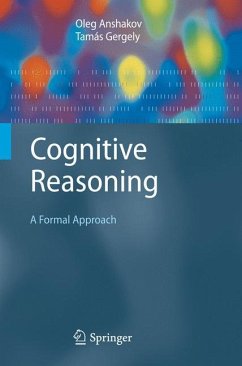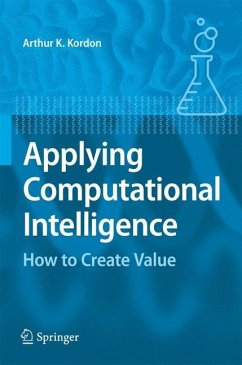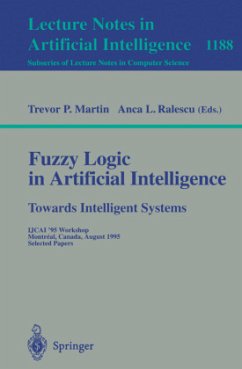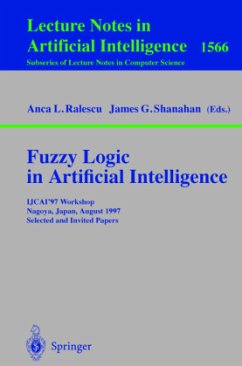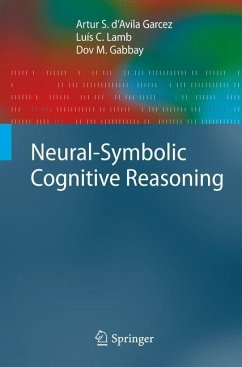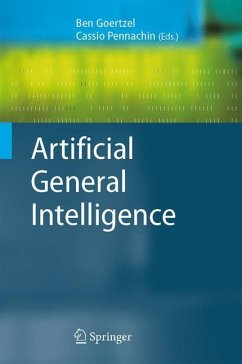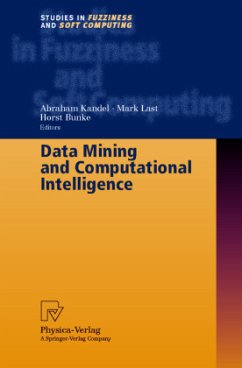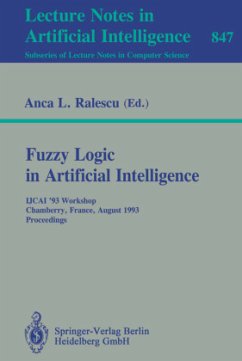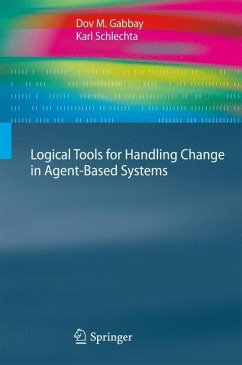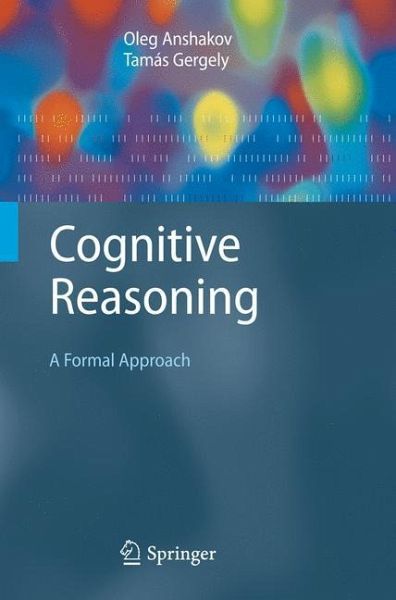
Cognitive Reasoning
A Formal Approach
Versandkostenfrei!
Versandfertig in 6-10 Tagen
113,99 €
inkl. MwSt.
Weitere Ausgaben:

PAYBACK Punkte
57 °P sammeln!
This book is of high topicality, due to the widespread use of informatics in hardly formalized disciplines such as sociology, life sciences etc., in which problem solving requires special tools of formal inference and plausible reasoning. The book describes the theory, methodology and algorithmization of a new approach, and some of its applications realized in the form of intelligent systems, e.g. for sociology, life sciences, etc.
The main subject developed in the book is cognitive reasoning integrating three types of inference: context dependent induction, causal analogy and a new formalization of abduction. Many valued logics in particular with constructive generation of truth values provide efficient tools to handle uncertainty similarly to fuzzy logic. A method of automatic iterative hypothesis generation is proposed by the use of cognitive reasoning.
The main subject developed in the book is cognitive reasoning integrating three types of inference: context dependent induction, causal analogy and a new formalization of abduction. Many valued logics in particular with constructive generation of truth values provide efficient tools to handle uncertainty similarly to fuzzy logic. A method of automatic iterative hypothesis generation is proposed by the use of cognitive reasoning.
Dealing with uncertainty, moving from ignorance to knowledge, is the focus of cognitive processes. Understanding these processes and modelling, designing, and building artificial cognitive systems have long been challenging research problems.
This book describes the theory and methodology of a new, scientifically well-founded general approach, and its realization in the form of intelligent systems applicable in disciplines ranging from social sciences, such as cognitive science and sociology, through natural sciences, such as life sciences and chemistry, to applied sciences, such as medicine, education, and engineering.
The main subject developed in the book is cognitive reasoning investigated at three levels of abstraction: conceptual, formal, and realizational. The authors offer a model of a cognizing agent for the conceptual theory of cognitive reasoning, and they also present a logically well-founded formal cognitive reasoning framework to handle the variousplausible reasoning methods. They conclude with an object model of a cognitive engine.
The book is suitable for researchers, scientists, and graduate students working in the areas of artificial intelligence, mathematical logic, and philosophy.
This book describes the theory and methodology of a new, scientifically well-founded general approach, and its realization in the form of intelligent systems applicable in disciplines ranging from social sciences, such as cognitive science and sociology, through natural sciences, such as life sciences and chemistry, to applied sciences, such as medicine, education, and engineering.
The main subject developed in the book is cognitive reasoning investigated at three levels of abstraction: conceptual, formal, and realizational. The authors offer a model of a cognizing agent for the conceptual theory of cognitive reasoning, and they also present a logically well-founded formal cognitive reasoning framework to handle the variousplausible reasoning methods. They conclude with an object model of a cognitive engine.
The book is suitable for researchers, scientists, and graduate students working in the areas of artificial intelligence, mathematical logic, and philosophy.




